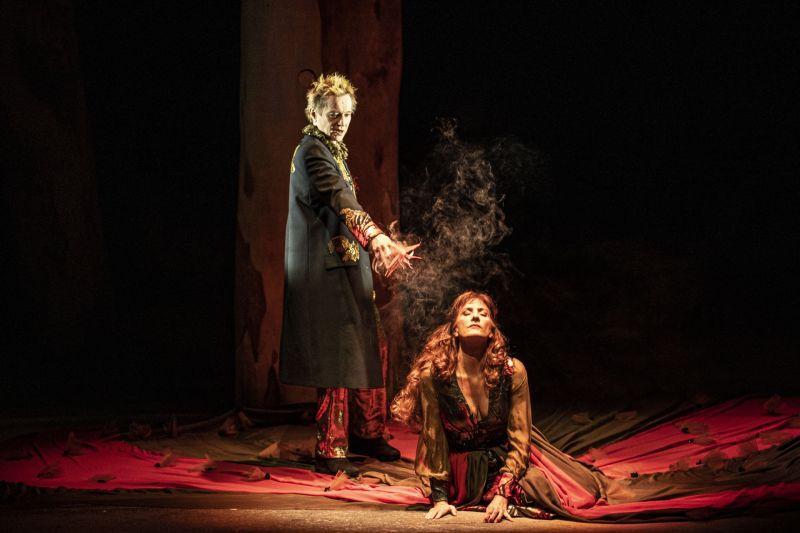What is
A Midsummer Night's Dream
?
Victor Hugo wondered:
“It’s fantasy, it’s arabesque.”
A Midsummer Night's Dream
is a comedy whose obvious purpose is to celebrate marriage, a comedy which is based on a rupture between the lovers but there is no question, in Shakespeare, that this discord arises from any human reason .
Also, the genius of Stratford introduced the fairies.
Fantasy and arabesque, then.
So how did Emmanuel Demarcy-Mota bottle this
Songe
(in a new and remarkable translation by François Regnault)?
In this large and impressive Sarah-Bernhardt room, the director interprets the night which would not only be this evil time which passes from the end of dusk to the beginning of dawn, but a character carrying many anxieties and pleasures.
And the moon “pale with anger” watches over disasters.
The decor of great beauty takes on its full scope here.
Tall trees slide majestically on manual slopes, the forest changes tones, all of this is magical.
The play begins like this: Theseus and Hippolyte are lying on a white surface.
Elegantly dressed - classic contemporary clothing - they are preparing their wedding.
Enter Égée (Stéphane Krähenbühl) who orders his daughter Hermia (Sabrina Ouazani), in love with Lysandre (Jackee Toto), to marry Démétrius (Jauris Casanova), whom she does not love.
Lysander and Hermia flee into the magical forest.
Démetrius follows them, himself pursued by Héléna (Élodie Bouchez), a friend of Hermia.
The dream, or rather the nightmare, can begin.
Also readShakespeare, as you like
A reinvented world
From scene 2, the infernal Shakespearean machine sets in motion and Demarcy-Mota's direction will wake up the night.
We skilfully leave the slumbering tragedy behind to enter the enchantment of the night.
Under the wand of his king Oberon (Philippe Demarle), the elf Puck (always followed by his two doubles) and the fairies, under that of their queen Titania (Valérie Dashwood), will be able to sow their love potion which triggers a real mayhem: Lysander and Demetrius both fall in love with Helena, much to Hermia's dismay.
Emmanuel Demarcy-Mota has a way of rediscovering this old-fashioned theater which is so often lacking in so many bloated performances.
The fairies come out of the trapdoors and Titiana crosses the stage suspended on two ropes.
The director has worked on the rudimentary bases of theater and on these bases, he reinvents the physical world and the astral world of Shakespeare.
Without obscuring the stainless joy of the piece, his vision of the
Dream
reveals our hidden side, explores our discomfort and our lies.
He knows that language is a way for men to recognize each other at night when they can no longer see each other.
“Now, fair Hyppolyte, our nuptial hour / Is advancing with great strides;
Four happy days bring / Another moon…”
Theseus’ first sentence already anticipates the conclusion:
“Sweet friends, to your beds!”
and happy night!
A Midsummer Night's Dream
, at the Théâtre de la Ville-Sarah Bernhardt (Paris 1st), until February 10.
Tel.: 01 48 87 59 50.

